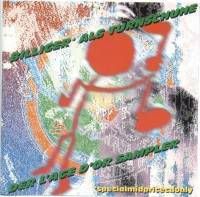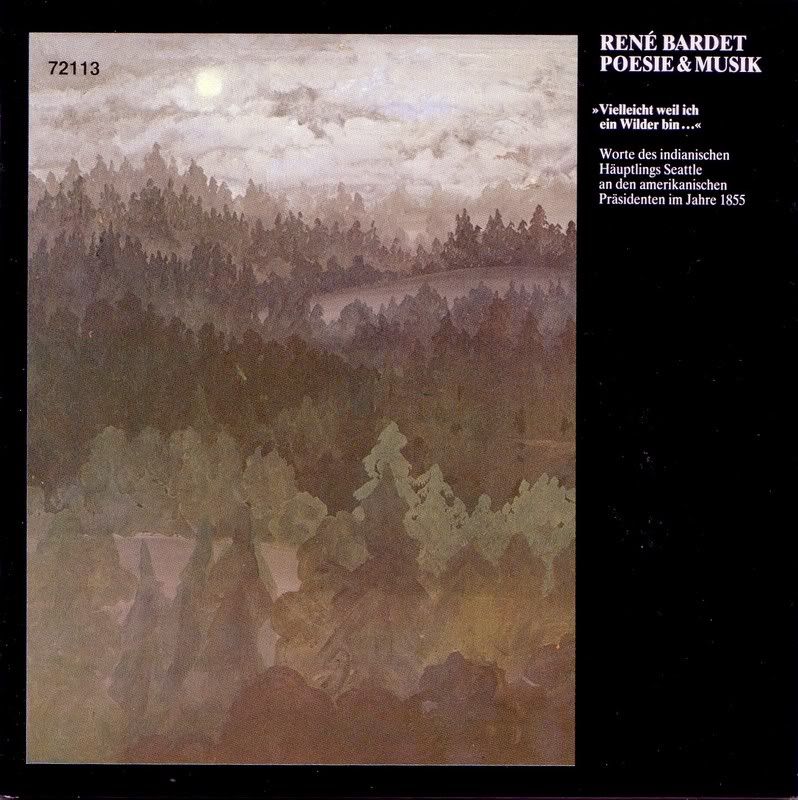 "Im Lebenslauf verteidigt der Mensch das einzige, was er besitzt: seine Zeit und seinen Eigensinn ... Gefühle können Partisanen sein, Katalysatoren, Störenfriede, Bremser und Vollender. Sind sind geheimnisvilles Inventar der Geschichtslandschaften, sie begründen bestimmte Prozesse weit jenseits des organisierten guten Willens, der sich Politik nennt."
"Im Lebenslauf verteidigt der Mensch das einzige, was er besitzt: seine Zeit und seinen Eigensinn ... Gefühle können Partisanen sein, Katalysatoren, Störenfriede, Bremser und Vollender. Sind sind geheimnisvilles Inventar der Geschichtslandschaften, sie begründen bestimmte Prozesse weit jenseits des organisierten guten Willens, der sich Politik nennt." (Alexander Kluge)
Markus Wolf died 13 years ago. Some years ago i read the book "Freunde sterben nicht" by Markus Wolf. Four of the nine chapters of the book are presented on this audio book by Markus Wolf himself.
Markus Wolf led the foreign intelligence division of the East German Ministry for State Security, known as the Stasi, during much of the Cold War.
Born in Hechingen, Province of Hohenzollern (now Baden-Württemberg), Wolf was the son of the writer and physician Friedrich Wolf and brother of film director Konrad Wolf. His father was a member of the Communist Party of Germany, and after Adolf Hitler gained power, they emigrated via Switzerland and France to Moscow because of their Communist conviction and because Markus's father was Jewish.
During his exile, he first attended the German Karl Liebknecht Schule and later a Russian school. Afterwards, he entered the Moscow Institute of Airplane Engineering (Moscow Aviation Institute), which was evacuated to Alma Ata after Germany's attack on the Soviet Union. There he was told to join the Comintern, where he among others was prepared for undercover work behind enemy lines.
After the end of the war, he was sent to Berlin with the Ulbricht Group, led by Walter Ulbricht to work as a journalist for a radio station in the Soviet Zone of occupation. He was among those journalists who observed the entire Nuremberg Trials against the principal Nazi leaders.
In 1953, at the age of 30, he was among the founding members of the foreign intelligence service within the ministry of state security. As intelligence chief, Wolf achieved great success in penetrating the government, political and business circles of West Germany with spies. He later explained to the publication Tikkun, "Many other Jews took a similar path, becoming active in the Stasi to hunt down former Nazis." He justified his decision on the grounds that Western powers used high-ranking Nazis, including Reinhard Gehlen, to build up their postwar intelligence services.
"Misha" Wolf's impact was undeniable. He was said to have been remarkably effective in stealing West Germany's weekly intelligence reports and was credited with planting thousands of moles in Western capitals, NATO headquarters and essential industries in science and technology.
One operative, Günter Guillaume, helped to topple the Social Democratic government of West German Chancellor Willy Brandt in 1974. Another agent, Markus Wolf said, became a secretary in the office of West German Chancellor Helmut Schmidt and provided details of communications between Schmidt and then-President Jimmy Carter.
He retired in 1986 in order to continue the work of his late brother Konrad in writing the story of their upbringing in Moscow in the 1930s. The book
Troika came out on the same day in East and West Germany.
Shortly before German reunification he fled the country, and sought political asylum in Russia and Austria. When denied, he returned to Germany where he was arrested by German police. Wolf claimed to have refused an offer of "seven figures", a new identity and a home in California from the Central Intelligence Agency to defect to the United States. In 1993 he was convicted of treason by the Oberlandesgericht Düsseldorf and sentenced to six years imprisonment. This was later quashed by the German supreme court, because Wolf was acting from the territory of the then-independent GDR. In 1997 he was convicted of unlawful detention, coercion, and bodily harm, and was given a suspended sentence of two years imprisonment. He was additionally sentenced to three days' imprisonment for refusing to testify against Paul Gerhard Flämig when the former West German politician was accused in 1993 of atomic espionage. Wolf said that Flämig was not the agent that he had mentioned in his memoirs: Flämig had unwittingly been probed by intelligence agents during authorised discussions in the GDR.
Markus Wolf died in his sleep at his Berlin home on 9 November 2006.
With "Freunde sterben nicht", Markus Wolf
looks back on his life.
With impressive candor he evokes friends and companions, and
gives insight into his own thinking.
He reports about friends who crossed his path and accompanied him on his way. There are people whose attitudes are as different as their paths: the "forgotten soldier" Leonard, the high school friend of the Arbat and later professor of literature Alik, the GDR "Kundschafterin" Johanna ...
From the chapter about Johanna: "So, wie die Bauernaufstände des Mittelalters trotz ihrer Niederlagen reichliche Spuren hinterlassen haben, meint Johanna, werden auch von unserem Wirken Spuren bleiben. (...) Gewiss empfinde ich, wie auch Johanna, neben Glück oft Trauer. Trauer über die verpassten Chancen in der Gesellschaft, der wir unsere Fähigkeiten und energien gaben. Trauer über die gegenwärtig geringen Möglichkeiten, auf den unheilvollen Lauf der Entwicklung in der Welt einzuwirken. (...) Ich fühle mich den toten Freunden verpflichtet, ich möchte ihre Gestalten und ihre Gedanken festhalten. Mögen unsere Spuren nicht zu schnell verwehen."
 This is the compilation that helped to define the sound of Tropicalia, whose artists made huge and influential strides in creating exotic pop that was as influenced by psychedelia as it was by samba, bossa nova, and more traditional South American genres.
This is the compilation that helped to define the sound of Tropicalia, whose artists made huge and influential strides in creating exotic pop that was as influenced by psychedelia as it was by samba, bossa nova, and more traditional South American genres. 

























